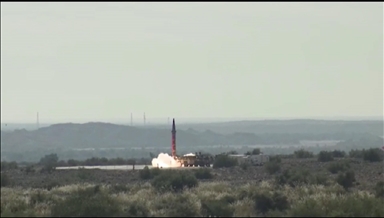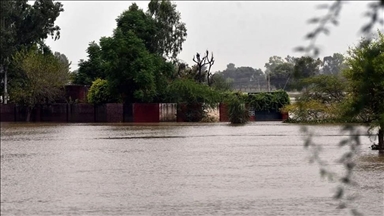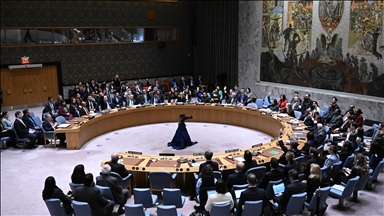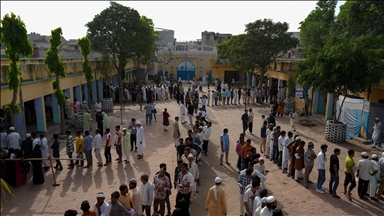Rising tensions take toll on Pakistan-India trade ties
Trade between two nuclear rivals has slid 20 percent since last September's attack that left 19 Indian soldiers dead
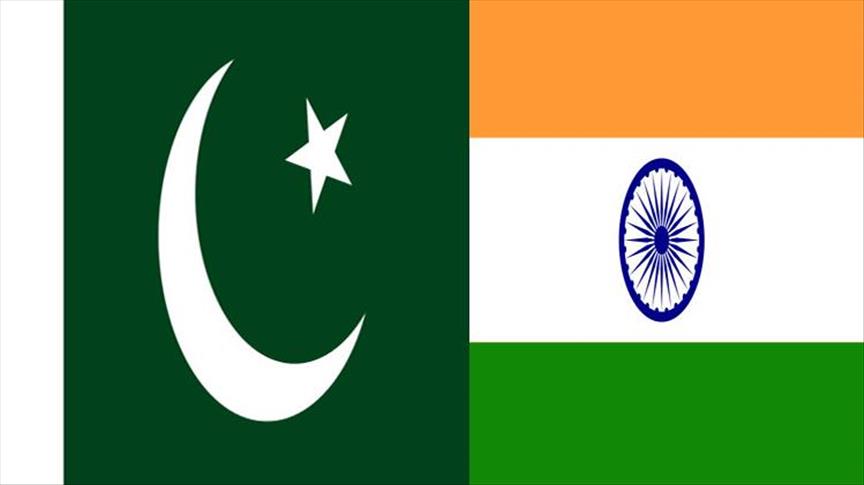 File photo
File photo
By Aamir Latif and Abdul Gani
KARACHI, Pakistan and GUWAHATI, India
Growing diplomatic tensions coupled with frequent border clashes since last year’s militant attack on an army base in Jammu and Kashmir have further shrunk the already meager trade between longtime rivals India and Pakistan.
Mounting hostilities have virtually shattered the dream of boosting the trade volume between the two nuclear-armed neighbors from the current $2.5 billion to $6 billion over the next two years as businessmen from both sides see no immediate signs of a thaw in ongoing tensions.
“There is already a 20 percent decrease in trade between the two sides, and it is likely to further decline in the months to come if the ongoing tensions are not stemmed,” S. M. Munir, chairman of the India-Pakistan Business Council (IPBC), told Anadolu Agency.
“India has been denying visas to Pakistani businessmen [since last September], which is affecting the bilateral trade,” he added.
Pakistan’s exports to India total $402.7 million, or 1.6 percent of its overall exports – less than a fourth of India’s exports to Pakistan, which stand at $1.7 billion or 3.8 percent of its total exports.
Pakistan accounts for less than 0.5 percent of India’s trade, and India represents a little over 3 percent of Pakistan’s total foreign trade.
Pakistan’s major exports to India include leather goods, dried fruits (especially dates), surgical instruments, zinc, and oil seeds, while it imports cotton, organic chemicals, plastic, dried vegetables, artificial fibers, tires, faux jewelry, and woven fabrics.
In 1996 India gave most-favorite nation (MFN) status to Pakistan, but this was not reciprocated, mainly due to opposition from Pakistani stakeholders, especially agriculturalists, fearing that a bigger Indian market could engulf their far smaller one.
Since a brazen attack last September near the town of Uri, in Jammu and Kashmir, killing 19 Indian soldiers, the two sides have been engaged in frequent border clashes that have claimed over 60 lives on both sides, civilians and soldiers alike.
New Delhi accuses Islamabad of having a hand in the audacious attack. Denying the charge, Pakistan itself criticizes India’s repression of pro-independence protests in the disputed Himalayan region of Kashmir that began last July, in which more than 100 Kashmiri civilians have been shot dead by Indian forces and thousands more injured.
Last September’s attack led to Indian Prime Minister Narendra Modi claiming that Indian forces carried out surgical strikes in the Pakistani part of Kashmir – better known as Azad (independent) Kashmir – killing several “militants”.
Kashmir, a Muslim-majority Himalayan region, is held by India and Pakistan in parts and claimed by both in full.
Since they were partitioned in 1947, the two countries have fought three wars – in 1948, 1965, and 1971 – two of them over Kashmir.
No major loss to Islamabad
Many Pakistani businessmen think India comes out worse in the lull in trade.
“Pakistan is not the major loser in these circumstances because the current trade volume is hugely in favor of India,” Munir said.
“India’s exports to Pakistan are [almost] five times higher than Islamabad’s exports to New Delhi. So India is conceding more losses compared to Pakistan,” he added.
There has been no effect on one of Pakistan’s major exports to India, dates, despite simmering tensions.
India annually buys 400,000 metric tons of dried dates – commonly known as Chohara – from Pakistan, mainly from the southern Khairpur district.
Muhammad Bashir Arain, head of the Khairpur date merchants association, says India has no other option but Pakistan to meet its requirements for Chohara, which is an essential part of scores of Hindu rituals.
“India is the sole buyer of 80 percent of the Chohara we annually produce” in Khairpur, Arain told Anadolu Agency.
In a related development, Pakistan recently proposed to India to “shun enmity” and join the $46 billion China-Pakistan Economic Corridor (CPEC) project with a view to boost regional and bilateral trade in line with Iran, Afghanistan, and other Central Asian countries.
Hope
According to Indian analysts, the ongoing political tensions have hampered trade and commerce between India and Pakistan but it will grow back again gradually, if slowly.
However, the analysts also believe that under such circumstances, no new traders will be encouraged to invest.
“Over the last decade, trade has fluctuated but on the whole it has been on the rise – though at a very slow pace. In the past even after the [2008] Mumbai attack trade did fall but it recovered,” Nisha Taneja of the Indian Council for Research on International Economic Relations (ICRIER) told Anadolu Agency.
The Uri attack of last September “is expected to have a lower impact than the Mumbai attack,” she said.
She added that the trade would continue to pick up but at a slower pace.
“Traders on both sides of the border have only one concern – goods should reach markets and payment should be ensured. Trading partners who have been trading for a long time will continue to trade as trust builds through repeat transactions which ensure that transactions are completed successfully. However, current relations between the two countries will deter new traders from entering India-Pakistan trade,” she said.
Indian-Pakistani trade ties are abysmally low, accounting for less than half a percent of India’s total global trade in both exports and imports, according to the Associated Chambers of Commerce and Industry of India (ASSOCHAM).
DS Rawat, the group’s head, said that for political reasons, businesses on both sides have not been cultivating an interest in the other country.
Anadolu Agency website contains only a portion of the news stories offered to subscribers in the AA News Broadcasting System (HAS), and in summarized form. Please contact us for subscription options.



